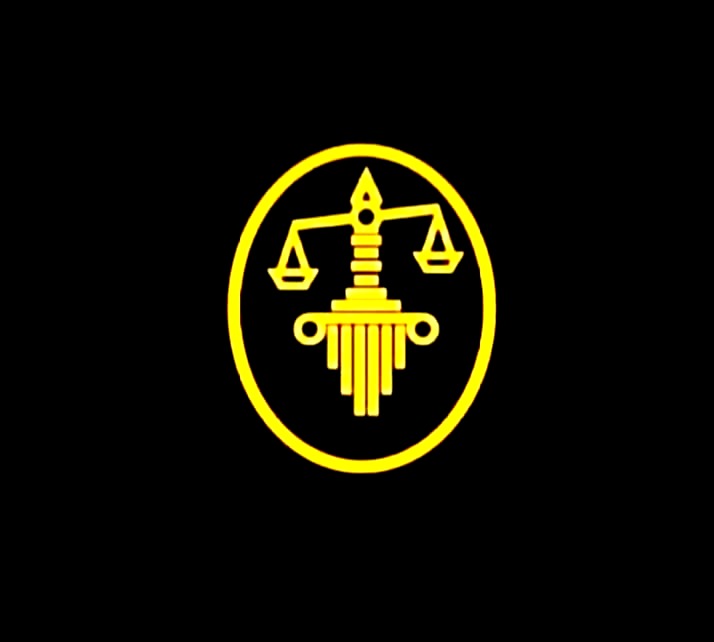top of page
BLOG POSTS
DISCLAIMER
This blog does not contain legal advice. The legal information is provided for general informational and educational purposes only and is not a substitute for professional advice. Accordingly, before taking any actions based on such information, we encourage you to consult with the appropriate professionals. Authors are liable for any plagiarism and Lawpoint Uganda won`t have liability towards the same.


A Judge Retains the Absolute Right to Alter Their View, Rewrite Their Opinion, or Dissent Until Formal Pronouncement in Open Court or Perfection Through Signing and Delivery. Supreme Court Rules
While Article 126(2)(e) directs courts to administer substantive justice without undue regard to technicalities, this principle cannot be invoked to bypass or override express constitutional provisions regarding court composition. Constitutional mandates on judicial composition are not 'technicalities' but fundamental jurisdictional requirements.

Mutungi Owen Mark
Feb 1611 min read


Court at Jinja Settles a 23-Year-Old Land Dispute, Holding That a Landowner Cannot Halt a Public Project by Refusing a Valuation Award Where a Statutory Remedy Exists Under the Land Acquisition Act
The Court found that the government had complied with the procedural requirements of the Land Acquisition Act. Unlike cases where the government ignores compensation entirely, here an award was made. A landowner cannot halt a public project simply by refusing a valuation award if a legal remedy for that valuation exists.

Waboga David
Jan 712 min read


Constitutional Court of Uganda Dismisses Petition by Civilian Challenging Court Martial Conviction
The Court held that the petitioner did not fall within the exception set out by the Supreme Court's ruling in Kabaziguruka that allowed for the retrospective application of the unconstitutionality finding, as her conviction and sentence were no longer "being challenged in a court of law" within the context of the military justice system or its ordinary appeals.

Waboga David
Nov 23, 20255 min read


Constitutional Court of South Africa Confirms Equal Parental Leave Entitlements for All Parents
the Court has suspended the invalidity for 36 months to allow Parliament to enact remedial legislation. In the interim, it has ordered an immediate reading-in to the BCEA, entitling both parents to share a total of four months and 10 days of paid parental leave. This reform promotes gender equality, parental dignity, and flexible childcare arrangements, with significant implications for employers, employees, and the state. No interim changes apply to UIF benefits pending furt

Waboga David
Oct 4, 20252 min read


Uganda's Constitutional Court reaffirms that Magistrates’ courts cannot grant bail in cases triable only by the High Court; applications must be made directly to the High Court.
The court held that Guidelines 10(2) and 10(3) of the Constitution (Bail Guidelines for Courts of Judicature) (Practice) Directions, 2022 are consistent with Articles 2, 23(6)(b) and 23(6)(c) of the Constitution. They lawfully guide magistrates’ courts that only the High Court may grant bail for offences triable exclusively by it.

Waboga David
Aug 10, 20256 min read


General Elections Are a Process, Not a Single Event—So Too Must Be Election Petitions: An Analysis of the High Court’s Decision in Nambi Faridah Kigongo v Luyimbazi Elias Nalukoola & Anor
It is settled that an election is not an event but an elaborate process consisting of several stages which climax into voting, counting and tallying of votes, and final declaration of the winner by gazettement. As such, when faced with an Election Petition, the court has to analyse and evaluate the entire electoral process and not restrict itself to the polling day activities only

Lawpointuganda
May 30, 20255 min read


The Supreme Court of Uganda Upholds the Validity of Section 101(5) of the Financial Institutions Act, Which Bars Courts from Staying Liquidation Proceedings.
The Supreme Court of Uganda affirms that legislative provisions that limit court interventions during financial institution liquidations can be constitutional if they serve a legitimate public interest, such as maintaining financial stability.

Sylivia Nandawula
May 21, 20253 min read


HIGH COURT AFFIRMS THAT COURTS CANNOT CONFER JURISDICTION UPON THEMSELVES; ONLY PARLIAMENT CAN. HOWEVER, WHERE STATUTORY LAW IS SILENT, COURTS MAY APPLY INHERENT POWERS TO PREVENT INJUSTICE.
Uncertainty is an injustice that may result in oppression. The courts should remedy such a situation by providing certainty of trial.

Waboga David
Apr 5, 20253 min read


The Constitutional Court Holds That Election Disputes Must Be Resolved Within the Election Cycle to Ensure Electoral Justice—Delayed Determination of an Election Petition is Unconstitutional.
The Constitutional Court held that the failure to deliver a timely decision deprived the people of Kibuku County of their constitutional rig

Waboga David
Feb 18, 20254 min read


The High Court has Ruled That The Uganda Law Society Act Does Not Empower Any Individual or Council To Unilaterally Suspend Elected Members.– Elected Officials Cannot Be Arbitrarily Removed
Justice Ssekaana has held that the Uganda Law Society Act does not empower any individual or council to unilaterally suspend elected members

Waboga David
Feb 14, 20252 min read


THE TRIAL OF CIVILIANS IN MILITARY COURTS: A GLOBAL PERSPECTIVE AND THE UGANGAN CONUNDRUM
Several key cases have shaped the jurisprudence on whether military courts can try civilians. These cases reflect global opposition to the p

Obita Calvin Stewart
Jan 29, 202511 min read


Constitutional Court Reaffirms That Its Jurisdiction Is Limited to Constitutional Interpretation, Not Individual Rights Enforcement
The court highlighted the distinction between enforcing constitutional rights and interpreting the Constitution. As noted in Tinyefuza v AG,

Waboga David
Jan 13, 20252 min read


Case Brief Of Hon. Michael Kabaziguruka Versus Attorney General Constitutional Petition No. 45 Of 2016
Civilians can be subject to military law where they are charged with aiding and abetting serving UPDF Officers to commit service offences.

Mbabazi Cindy Patricia
Jan 6, 20253 min read


Constitutional Court Grants Leave to Amici Curiae in Divorce Act Petition.
A perusal of the intended brief further shows that it is grounded in the law, does not amount to fresh evidence or a new cause of action, do

Lawpointuganda
Dec 16, 20243 min read


UGANDA AT 62: THE EVOLUTION OF THE RULE OF LAW POST-INDEPENDENCE
As Uganda celebrates 62 years of independence, the journey of the rule of law reflects both the triumphs and trials of the nation’s legal

Obita Calvin Stewart
Oct 9, 202412 min read


CONSTITUTIONAL INTERPRETATION OR RIGHTS ENFORCEMENT? A CLOSER LOOK AT THE LEGAL BRAIN TRUST V. ATTORNEY GENERAL, 2021 RULING
From the above jurisprudence, it can be discerned that certain rights violations can be straightforwardly addressed through factual determin

Lawpointuganda
Sep 30, 202411 min read
Follow us:
bottom of page



















.jpg)
